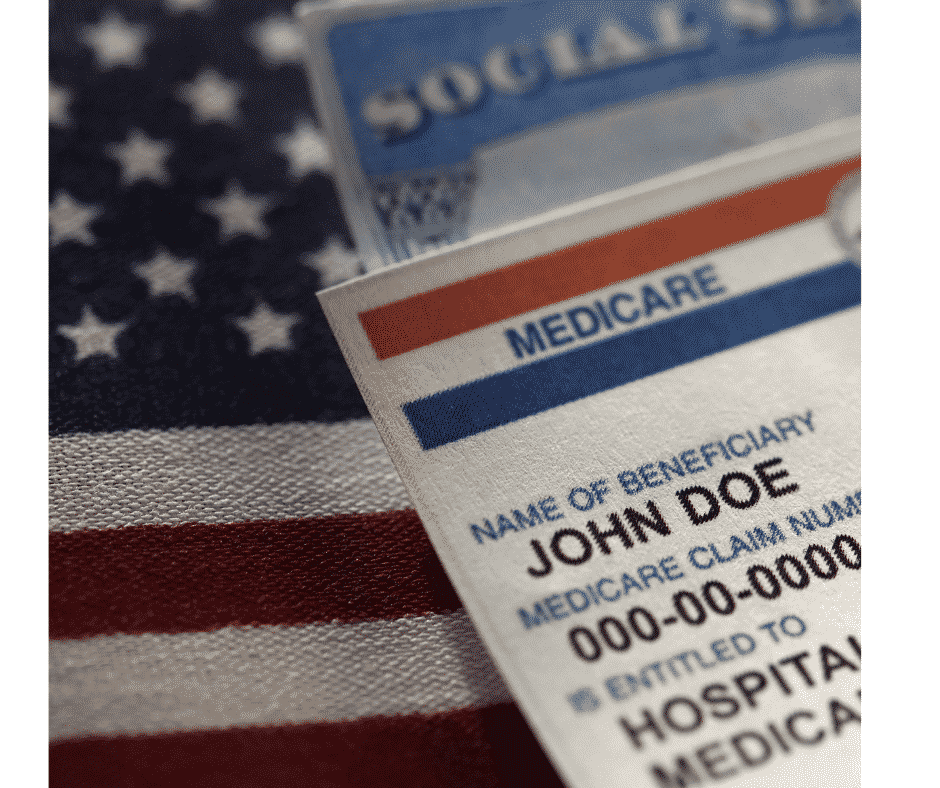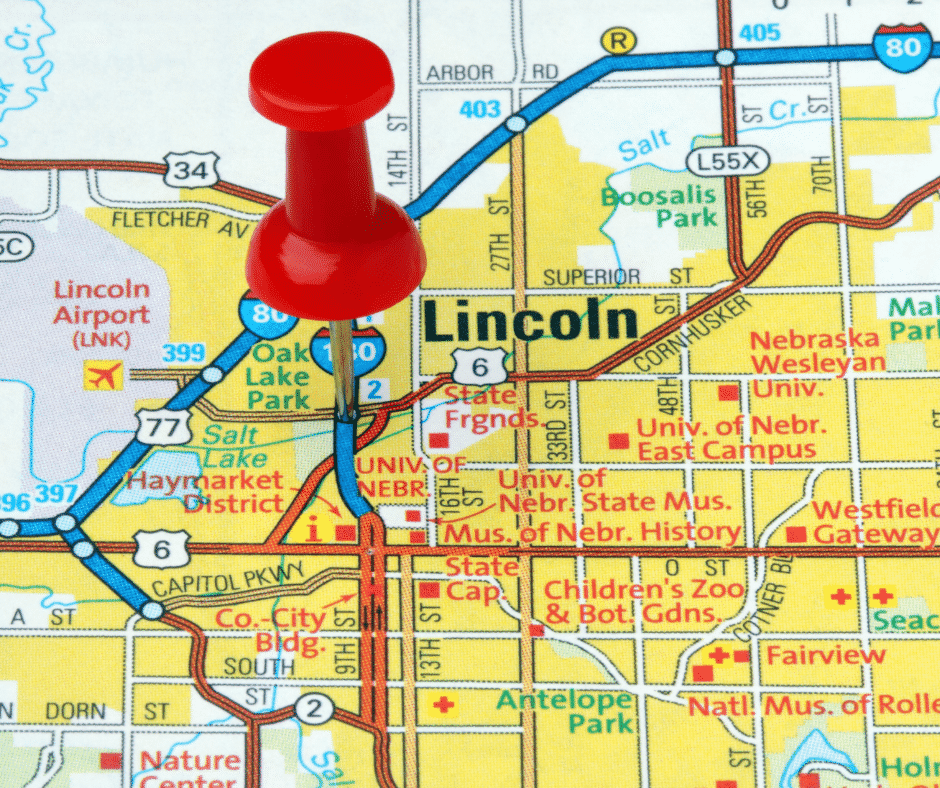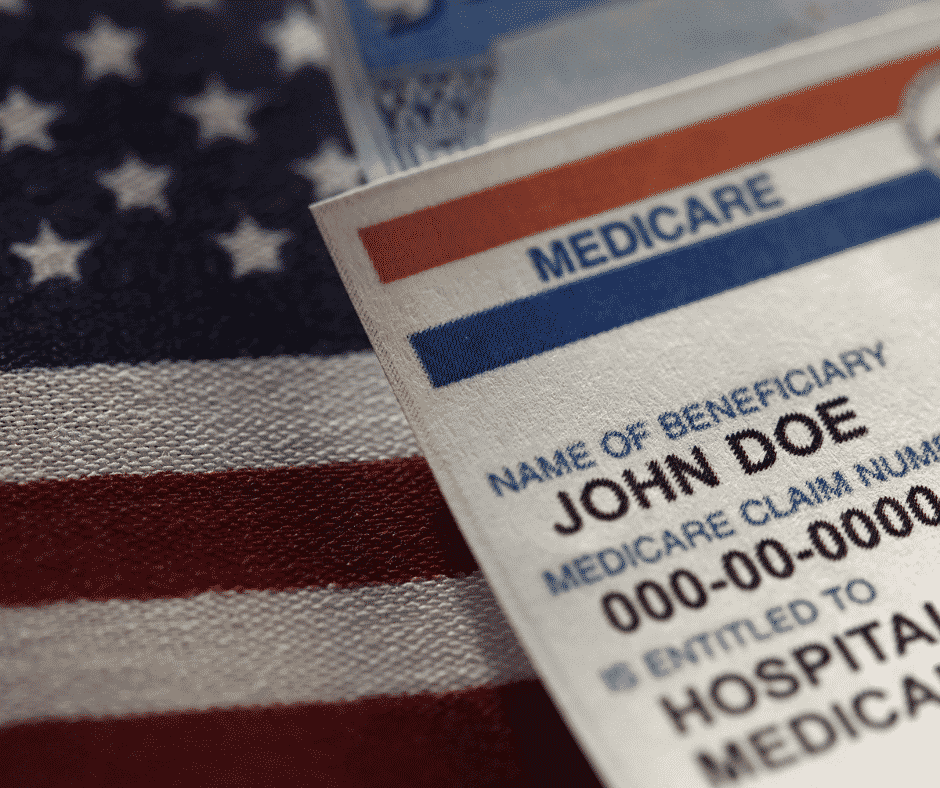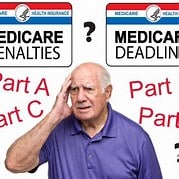Medicare Advantage PlansCategory:

For as long as I have been educating people about Medicare, prospects are always surprised when I talk about Medicare Advantage insurance plans in Omaha, Nebraska. Even for those who have heard something about Medicare Advantage, people are astonished when I go into the details of the plans. So I’ve found people need a beginner’s guide to Medicare Advantage plans to put this “new” idea into context.
Is Medicare Advantage Better?
A beginner’s guide to Medicare Advantage programs needs to explain the tremendous interest in the plans.
The trustees for the Medicare Trust Fund recently issued their annual report. They surprised the public by announcing Medicare would go broke in 2026, three years earlier than projected. The demise of Medicare and the date of the end is an annual event. In light of the enormous spending budgets pushed through Congress recently, the natural question is why are we spending so much if Medicare is failing, especially as the enormous baby boomer population is filling up Medicare rolls at record rates.
Medicare Advantage has been a working solution to the rising cost of Medicare since the 1990s. Its size and importance on the Medicare landscape are growing significantly and will only expand even more.
What is Medicare Advantage?
Medicare Advantage is Medicare, but is Medicare administered by a private insurance company. The Center for Medicare & Medicaid Services (CMS) approves all Medicare Advantage plans. The private insurance company must meet specific and strict CMS criteria. Medicare Advantage plans must provide at least as much care, if not more, as regular Medicare.
The purpose of utilizing private insurance companies was to use the efficiency of the market and competition to reduce the overall medical burden for the taxpayer and improve the quality of healthcare. Ideally, the system strives to align with the incentives of the patient, insurer, provider, and government to deliver the highest quality care at the lowest cost. The plans, previously called Medicare Plus, received their modern name as part of the Medicare Modernization Act of 2003. Medicare Advantage accounted for 35% of Medicare members at the end of 2017.
According to healthcare consulting firm LEK, the program will grow to around 45-55% of Medicare enrollees by 2025. As a result, Medicare Advantage enrollment presents a significant business opportunity for insurers and other partner healthcare players, such as home care agencies and physician groups, to serve the older population.
 Is Medicare Advantage A Good Deal?
Is Medicare Advantage A Good Deal?
CMS (Center for Medicare & Medicaid Services) and Social Security Administration(SSA) try to function like insurance companies collecting premiums and paying claims based on actuarial calculations of cost and risk. The record of fraud, waste, and abuse Medicare has suffered over the years forced Congress to look outside for other alternatives, such as privatization. The government currently pays insurers between about $10,000 and $14,000 a year for each Medicare Advantage member. That differs from traditional Medicare, in which the government pays providers directly. It is hard to get a similar number for Original Medicare because of the enormous cost of the CMS bureaucracy.
The Centers for Medicare and Medicaid Services (CMS) project Medicare enrollment to grow from 59.3M in 2018 to 72M in 2025. This projection works out to a $360B to $468B market share in 2025 before accounting for growth in payments (rates have increased more than 3% in each of the last two years). Medicare Advantage is vital in combating the growing cost of healthcare that is beginning supercharged by recent inflationary concerns.
The first point in the beginner’s guide to Medicare Advantage programs is MA plans reduce overall costs to Medicare and the taxpayer.
 How Does A Medicare Advantage Plan Work?
How Does A Medicare Advantage Plan Work?
With something relatively new like Medicare Advantage, people want to understand how it works. A beginner’s guide to Medicare Advantage plans must address the simple question: how does it work?
In 1964, Medicare created the Trust Fund to fund Part A, Hospital Insurance (HI). The Congressional Budget Office estimates the expenditures for HI currently will outpace revenue by 2026. The present payroll tax for Medicare of 1.45% / 2.9% is insufficient to meet expenditures.
Medicare Advantage has grown in popularity among legislators and consumers because it lowers costs for patients while providing members with additional benefits.
Who Pays For Medicare Advantage?
Medicare Advantage insurance plans in Omaha, Nebraska, and throughout the country are different than traditional Medicare plans. Traditional Medicare (“Original Medicare” is the official name) is the oldest type of insurance payment–“fee-for-service” (FFS). With FFS Medicare, CMS (Center for Medicare & Medicaid Services) pays a fee for each procedure or service. In Medicare Advantage, CMS pays insurers one monthly sum per member to manage all healthcare expenses. The plan must cover at least all that Medicare covers and provide care as determined by CMS guidelines. The monthly plan payment is called a “capitation.”
How Does An Advantage Plan Work with Medicare?
A beginner’s guide to Medicare Advantage programs must nail the critical difference of how it works from Original Medicare. ‘Follow the money!’
The Capitation Model under CMS is a three-way contract between the insurance company, the state, and CMS for Medicaid plans to provide comprehensive, coordinated care. In the capitated model, CMS and the state will pay each health plan a prospective capitation payment. CMS is collecting a variety of measures that examine plan performance and the quality of care provided to enrollees. This data goes into how much, or little CMS pays each plan. Coordination with the state is essential for the duel-type plans that coordinate between Medicare and Medicaid Plans (MMP).
With Medicare Advantage, the patient-Driven Payment Model (PDPM) aligns incentives for seniors, insurers providers, and the government.
-
Seniors get extra benefits and an insurer is motivated to keep patients healthy and at a low cost.
-
Insurers get an ample profit opportunity – managing the complex care of seniors. Medicare Advantage plans had 25% higher profit margins than traditional insurance in 2016.
-
The government can push the management of many seniors to the private sector, reducing the massive Medicare bureaucracy cost.
What Is the Difference Between Regular Medicare and Medicare Advantage?
Both Medicare Advantage and traditional Medicare (Original Medicare) pay for healthcare for seniors and others eligible for Medicare, but they work differently. Medicare Advantage combines health insurance, prescription drug coverage, and additional benefits, like dental, vision, and hearing, into one plan with one medical card. Original Medicare stands alone and provides coverage under the red, white, and blue Medicare card. Original Medicare may be combined with a Medigap policy. The Medigap policy from the private insurance company fills in the Part A deductible and unlimited Part B coinsurance gaps for an additional premium. The Medigap policy is a separate card.
In addition, the consumer must purchase a separate stand-alone Part D prescription drug plan from another private insurance company. If they want additional benefits, such as dental, vision, and hearing, they must purchase another policy from another insurance company. Thus three insurance companies plus Medicare insurance for a total of four separate premiums coming out of your bank account as well as four cards to carry. A Medicare Advantage insurance plan in Omaha, Nebraska is one card and one point of contact for everything with no premium or meager premium aside from the Medicare Part B premium drafted out of your Social Security check.
 Only with Medicare Advantage
Only with Medicare Advantage
Some Medicare Advantage plans’ designs cater to beneficiaries with special needs, like diabetes, COPD, and coronary issues. These consumers’ situations need special care to mitigate against further decline. Original Medicare does not offer these types of specialty programs–Medicare Advantage does.
The most significant advantage of Medicare Advantage enrollment compared to Original Medicare is the Maximum Out-of-Pocket (MOOP) for each plan. The MOOP for 2022 is $7,550 in-network and $11,300 out of network, but in many areas, such as the Omaha Metro Area, most of the MA plans have much lower MOOP’s. Original Medicare does not have a MOOP. There is no limit on the number of times Medicare may access a Part A deductible, and there is no maximum out of pocket for the Part B coinsurance. It is an unlimited 20% coinsurance. That is why people pay the additional premium for Medigap policies.
Different Kinds of Plans
Medicare Advantage plans come in different network structures–HMO, PPO, PFFS. Insurance companies develop networks with doctors and hospitals to reduce costs and increase the quality of outcomes. In the HMO (Health Management Organizations), the insurance company signs a contract with the doctor or healthcare institution to provide healthcare in the manner dictated by CMS’s Patient-Driven Payment Model (PDPM) and according to the insurance company’s pay structure. The insurance company provides clients for the providers, and providers offer their services at a reduced cost. The focus is on quality of outcome versus quantity, such as with the FFS Original Medicare model.
Original fee-for-service Medicare does not have this structure. CMS determines the fee structure for doctors and hospitals. CMS pays them directly. If a doctor or hospital does not wish to participate in the Medicare system, they do not accept their patient’s Medicare card. The more services provided, the more Medicare pays the hospitals and doctors. The focus is on quantity rather than quality.
Medicare Advantage Insurance Plans in Omaha, Nebraska
In the Omaha Metro Area, we are blessed with three excellent networks: Catholic Health Initiative (CHI), Nebraska Medicine, & Methodist. They work with the area Medicare Advantage plans, so all of their doctors and facilities are included within the plans’ networks.
Some plans are PPO (Preferred Provider Organizations) plans, meaning those plans work with doctors outside the prescribed network; however, the doctor or institution must still accept Medicare for service to be rendered. The cost maybe more, but the MA plan will work with those physicians and institutions to reimburse them for services according to Medicare’s assignment of fees. A beginner’s guide to Medicare Advantage plans needs to layout these mechanics.
What Does Utilization Management Have To Do with Medicare?
The most significant difference between Medicare Advantage and Original Medicare is MA’s use of “utilization management.” MA plans require prior approval for a large number of procedures, especially those that are costly. The insurance company determines based upon the information the doctor provides whether the recommended treatment is the most cost-efficient to achieve the desired outcome. These decisions are made based on CMS guidelines for care.
Utilization management (UM) is the method used by most health plans already. The employer health plan would give the green light for a procedure during your working years or recommend a less costly and/or intrusive procedure. Insurance companies use the same method in Medicare plans now to prevent waste and abuse of resources.
UM is a set of techniques used by insurance companies to manage health care costs by influencing provider and patient care decision-making through case-by-case assessments of the appropriateness of care. The change is because, in a predominantly fee-for-service payment system, the motivator is to increase the number of procedures resulting in unnecessary and inefficient care provided to patients. The UM systems can reduce waste and abuse, and the cost of operating UM systems is small compared to overall savings, which research suggests is between 10-30%.
 How Do Medicare Advantage Plans Make Money?
How Do Medicare Advantage Plans Make Money?
CMS pays an insurance company with a Medicare Advantage contract a Per-Member-Per-Month (PMPM) dollar amount to provide care that meets CMS’s standard for a Medicare plan. Per-Member-Per-Month forms the basis upon which managed care organizations pay providers under capitation revenue stream or cost for each enrolled member each month. PMPM payments vary based on important factors, such as location, member health, and quality bonuses.
CMS assigns a benchmark rate to each county to account for differences in costs of care. For example, New York City has a higher benchmark rate than Biloxi, Mississippi.
Next, plans calculate a “risk score” for each member based on their health status. The less healthy an enrollee is, the higher their risk score will be.
What Is CMS Hierarchical Conditional Category System?
There are many different models for medical risk adjustment within the healthcare system. The Centers for Medicare & Medicaid Service (CMS) risk adjustment model uses the Hierarchical Condition Category (HCC) method to calculate risk scores for Medicare Advantage enrollment patients. The hierarchical condition categories list relates medical diagnoses into groupings based on resource use. Higher category risk scores represent higher anticipated healthcare costs. For example, diabetes diagnoses, including complications, have a higher risk score and greater anticipated Medicare risk and healthcare costs than diabetes without complications. The persons are assigned hierarchical condition codes that are tracked.
Medicare Billing Expansion
HCCs are a grouping of clinically related diagnoses with similar associated costs to the healthcare system. Only those International Classification of Disease (ICD) codes that map to an HCC category are used in the risk adjustment processing system. Not every diagnosis is “risk adjusting” or mapped to an HCC in the Medicare risk adjustment model. Some illnesses and injuries may not be predictive of ongoing expenses. Still, severe acute diseases and injuries or chronic conditions such as diabetes, heart failure, and chronic obstructive pulmonary disease may pose a continuing financial burden to the healthcare system. As a result, the number of billing codes has exploded exponentially.
Administration Is The Burden of Medicare Advantage
All risk adjustment models rely on comprehensive healthcare analytics and evidence-based reporting of patient care. CMS requires that a qualified healthcare provider describe all chronic conditions and severe diagnoses for every patient every year to establish a health profile. Documentation in the medical record content must indicate the provider’s plan for patient help or Management, Evaluation, Assessment, or Treatment (MEAT) of the condition. The plan then predicts health costs using the HCC risk adjustment coding for the subsequent contract year. Inaccurate or non-specific diagnoses can impact patient care, outcomes, and reimbursement payment for the ongoing care of that patient. The systems are so complex the customer experience of healthcare is significantly diminished.
The CMS HCC risk adjustment model assigns a risk score, also called the Risk Adjustment Factor (RAF) to each eligible Medicare Advantage (MA) enrollment beneficiary. A beneficiary’s Medicare RAF is based on the beneficiaries’ health conditions and demographic factors such as Medicaid and disability status, gender, age, and whether a beneficiary lives in the community or an institution, like a skilled nursing facility.
Higher risk scores, or RAF, represent more significant than average disease burden patients. Lower risk scores represent a healthier population view but may also falsely indicate a healthy population with poor chart documentation or incomplete Medicare risk adjustment coding.
 Risk Score Makes for Better Healthcare
Risk Score Makes for Better Healthcare
When using the Medicare risk adjustment factor system, each beneficiary is assigned a “risk score” according to the patient’s demographics, health status, and other clinical factors. The beneficiary’s risk score depicts the patient’s predicted health costs compared to an average beneficiary’s. The Medicare RAF is a relative measure of the predicted costs to meet the healthcare needs of the beneficiary.
Complexity Makes for Mistakes
Health plans collect payments for covered members from CMS. A risk adjustment factor system adjusts plan payments to ensure fair payment for providing healthcare services and benefits, sometimes known as population health management. A complex formula determines the payments that apply the Medicare risk adjustment factor terms to an average payment based on location. A complex formula determines the payments that apply the Medicare risk adjustment factor terms to an average payment based on location. In 2020 RAF Medicare scores increase based on the condition count (how many HCC conditions the patient has). Specific disease interaction algorithms may increase the risk score. There is also disease hierarchy logic that prevents inflated risk scores.
For example, the RAF healthcare score will not increase if you diagnose “breast cancer” and “metastatic breast cancer” in the same patient. The RAF healthcare score determines the hierarchy logic for the more severe illness – metastatic breast cancer “supersedes” breast cancer without metastasis. In this example, the Medicare RAF score of the patient related to breast cancer is calculated exclusively on the RAF score for metastatic breast cancer.
metastatic breast cancer “supersedes” breast cancer without metastasis. In this example, the Medicare RAF score of the patient related to breast cancer is calculated exclusively on the RAF score for metastatic breast cancer.
When I hear about insurance companies busted for overcharging, the error is usually tied to misclassification. While some may be for gain, others are mistakes or attempts by providers to get the maximum benefit for the sick client. Add into that the blizzard of codes, and it is a system ripe for errors.
 Excessive Government Regulation Hurts Plans
Excessive Government Regulation Hurts Plans
Medicare and Medicaid risk adjustments modify capitated payments for beneficiaries enrolled in health plans. CMS policy requires that a qualified healthcare provider identify all conditions that may fall within an HCC at least once each calendar year. Many providers feel this requirement is a time-consuming clerical burden on resources! It is challenging to look through the complete medical record each year to document and code every HCC related diagnosis. Healthcare organizations are beginning to adopt CMS risk adjustment software to help search and capture all the appropriate conditions of each patient in their population to reduce the burden on physicians and coders. By using computer-assisted coding that can synthesize the medical record and quickly associate evidence for HCC related diseases, it helps CMS match insurance payment accurately to the resource requirements of a Medicare Advantage population.
What Is the 5 Star Medicare Advantage System?
CMS rates Medicare Advantage with prescription drug coverage (MA-PD) contracts on up to 45 unique quality and performance measures; CMS rates MA-only contracts (without prescription drug coverage) on up to 33 measures, and stand-alone PDP contracts on up to 14 measures. Each year, CMS conducts a comprehensive review of the measures that make up the Star Ratings by assessing the reliability of the data, clinical recommendations, and feedback received from stakeholders.
Plans can also receive bonus payments based on “Star” ratings given to them by CMS. Star ratings are on a 5-star scale, based on a comprehensive 45 area evaluation, including member health achievement and client satisfaction. Plans with 4 or more stars receive a 5% Quality Bonus Payment (QBP). Small plans and new plans that have existed for less than 3 years receive a 3.5% QBP. Multiplying the benchmark rate, average risk score for patients in a plan, and QBP rate determines the PMPM rate.
Why Is Medicare Advantage Growing So Fast Among Insurance Companies?
The baby boomer population continues to grow, and more insurance companies are developing MA plans to enter the market. They are developing better technology and models of payment and care reducing care overhead costs and barriers to entry for more insurance companies. Building a Medicare Advantage enrollment plan is a costly and challenging process, as you have read; however, more companies are entering because barriers are falling and profit margins are still growing. As more companies enter the market, more competition reduces costs and improves the quality of the services.
Why is Medicare Advantage Growing So Fast Among Consumers?
Medicare Advantage programs are local plans based upon the capitation model of payment, so they require a large population to scale and be profitable. As the plans grow, the networks expand, and technology enables more efficient use of resources, more and more plans are coming online with richer and richer benefits.
Further, an increasing proportion of the Medicare population is choosing Medicare Advantage enrollment. Thirty-four percent of Medicare recipients were on Medicare Advantage in 2018, up from 31% in 2014. According to consulting firm LEK, this number is projected to reach 60-70% between 2030 and 2040 eventually.
In the decade that I have offered Medicare Advantage plans in Omaha, Nebraska, I have seen the quality of the plans in the Omaha area increase significantly. People coming off employer plans are more accustomed to paying a larger share of the cost than previous new beneficiaries to Medicare. More and more people are coming off of high-deductible plans. The minimal copays and maximum out-of-pocket of most Medicare Advantage plans today seem small compared to former employer plans.
 A Beginner’s Guide to Medicare Advantage Is A Beginning
A Beginner’s Guide to Medicare Advantage Is A Beginning
I wrote this beginner’s guide to Medicare Advantage insurance plans in Omaha, Nebraska to help you understand how Medicare Advantage works in relation to Original Medicare. There is a large amount of misinformation about it. Insurance agents, agencies, and companies that only sell Medicare Supplements or Medigap plans muddy the waters by telling half-truths, exaggerating numbers, presenting misleading information, and excluding essential facts. Consumers, however, faced with hard economic and healthcare choices recognize the value being presented and are choosing Medicare Advantage plans more each year.
and are choosing Medicare Advantage plans more each year.
There is much more to know.
When people talk about Medicare Part C or Medicare Advantage insurance plans in Omaha, Nebraska, they are usually making a comparison. The comparison is generally to Original Medicare and a Medicare Supplement with Part D. These are the two main ways most people get their Medicare. These two ways are very different, and I don’t believe it is really possible to make a legitimate comparison. But, as we used to say as kids, everyone does it. So let’s do it.
 Medicare Advantage Insurance Plans in Omaha Nebraska vs. Medigap
Medicare Advantage Insurance Plans in Omaha Nebraska vs. Medigap
The principal reason I don’t believe you can compare Medicare Supplements to Medicare Advantage is that Medicare Supplements are the same across the country. A Plan G in Arizona is the same as a Plan G in Maine. Medicare Advantage programs, however, are different from state to state and even from county to county. So I will compare Medicare Advantage insurance plans in Omaha, Nebraska, to Medicare Supplements here.
Low-Cost Medicare Advantage Plans in Nebraska
Price is the main attraction for many of my thousands of clients to Nebraska Medicare Advantage (MA plan). Most of the plans have no premium. A couple of them have minimal premiums, like $19, but the majority is zero. Clients like that, but they especially like the price in comparison to Medigap monthly premiums. A Plan G in this area for a male is approximately $150 per month on the low end. A drug plan could be $20 more or less. The simple math for a Plan G and a Part D prescription drug plan, including the Part B deductible, is around $2,200 a year. Most people do not spend anything close to that in annual copays on a MA plan.
Yes, one year or maybe two years, you might spend more than that on a Medicare Advantage plan in Nebraska, but over five, ten, fifteen years, most clients will pay out far less than the monthly Medigap premium that is constantly increasing with age and rate increases.
 Out of Control Medigap Premiums
Out of Control Medigap Premiums
Medicare beneficiaries constantly compare notes, which is an excellent source of referrals for me. I had a young lady come in recently. Her son, a client, brought her to the office to save money on her Medigap policy. She was 96 and paid $500+ per month for her Medicare Supplement. We submitted an application for a lower-cost Medigap policy since she was in good health. She passed, and we saved her over $3,000 a year. The cost of many Medigap policies can get entirely out of hand.
An agent should have been helping her keep her costs down all this time, but regardless, people see the price of supplements. They look at the Medicare Advantage insurance plan in Omaha, Nebraska, with no premium and very minimal copays, and they ask themselves, ‘Why?’
Why Pay Thousands of Dollars in Medigap Premium Each Year?
In the last analysis for most people, Medicare Advantage will result in less out-of-pocket costs than Original Medicare and a supplement and Part D plan in the long run. In the short run, most people will pay less with a Medicare Advantage plan. The general population recognizes this, which is why the continuous increase in enrollments throughout the country into Medicare Advantage plans.
 Medicare Advantage Insurance Plans in Omaha, Nebraska, Maximum Out-of-Pocket
Medicare Advantage Insurance Plans in Omaha, Nebraska, Maximum Out-of-Pocket
The downside of Medicare Advantage plans is when someone is seriously ill. One of my clients, a high school math teacher, developed leukemia, and the treatment was costly. The illness and treatment began in the fall. He hit his maximum out-of-pocket at that time, which was $4,900. The following year the treatments continued, and he reached the maximum out-of-pocket again. Dan was not happy about being on a Medicare Advantage plan. His cancer appeared a year after he started on the plan.
in the fall. He hit his maximum out-of-pocket at that time, which was $4,900. The following year the treatments continued, and he reached the maximum out-of-pocket again. Dan was not happy about being on a Medicare Advantage plan. His cancer appeared a year after he started on the plan.
We discussed switching to a supplement once his cancer went into remission. I waited two years and called Dan to do a supplement. Medigap plans usually have a two year gap required of being cancer-free. When we talked, he had decided to stay with the Medicare Advantage plan. He saw how over time, it saved him money. It must have been the math teacher in him. I was surprised, and I reminded him how upset he was a couple of years ago. He assured me that he was ok remaining on the plan, and he reminded me how emotional cancer can be.
I always remind people the maximum out of pocket is an actual number. The chances of one hitting that number at some point are real. I highly encourage clients to save the money they would otherwise spend on monthly premiums to offset the cost of copays and a challenging year.
Doctor Networks In Medicare Advantage Programs Omaha, Nebraska
Yesterday, I met with a lady who told me, “I don’t want a plan that tells me what doctors to see.” When I hear that phrase, I know they have listened to a Medicare Supplement advertisement or someone on YouTube deriding the evils of Medicare Advantage.
Medicare Advantage plans have networks just like the employer health plans most people were on most of their lives. Insurance companies develop networks for the purpose of keeping prices down.
As I said earlier, Medicare Advantage plans are local plans. They design the Medicare Advantage plan around a particular area, and the networks are no different. In the Omaha Metro area, which includes Lincoln, Bellevue, and Council Bluffs and all the small towns surrounding, there are three networks. Virtually every health professional in the area is associated with one or all of these networks. There are a couple of independent hospitals, but they also affiliate with the local Medicare Advantage plans in Omaha, Nebraska. In our area, there is absolutely no issue, and the networks and plans are going nowhere. These local plans and networks have been working together for years.
In other places, like Kansas City, where I have clients, the Medicare Advantage network criticism has some merit. I carefully check and double-check doctors and hospitals in that area because it is not as homogeneous as the Omaha Metro area. Of course, the Kansas City Metro is much more significant in terms of population and area. With 35 Medicare Advantage plans in Kansas Metro, finding the doctors and hospitals you prefer is not hard.
National Networks And PPO Plans
 But the network issue is actually becoming irrelevant as Medicare Advantage plans develop and grow. A larger and larger majority of doctors and medical facilities are becoming part of the MA network systems, and many of the insurance companies that offer Medicare Advantage plans also have national networks. With some plans, even HMO plans, clients may access doctors and hospitals across the country and pay in-network prices.
But the network issue is actually becoming irrelevant as Medicare Advantage plans develop and grow. A larger and larger majority of doctors and medical facilities are becoming part of the MA network systems, and many of the insurance companies that offer Medicare Advantage plans also have national networks. With some plans, even HMO plans, clients may access doctors and hospitals across the country and pay in-network prices.
For a while now, the insurance companies have included PPO (Preferred Provider Organization) plans. With a PPO plan, you have the in-network providers, like an HMO. Those doctors and medical facilities are at the lower in-network copays. The doctors and medical facilities not in-network cost a little more and have a higher total maximum out-of-pocket. As long as the doctor and hospital take Original Medicare, they will accept the PPO plan. Either way, this issue is becoming more and more a non-issue.
I also try to bring people back to reality. I ask, ‘How many times in your lifetime or your family have you left your area to go to a doctor or hospital over a hundred miles away?’ The reality for most people is zero. Sometimes the emotional sales language of the Medigap only insurance agents can cause a disconnect.
Managed Care
Medicare Advantage plans manage care like your employer’s health plans. The insurance company monitors the treatment you receive to make sure it is within customary standards of treatment. If not, the insurance company will question the requests. So the insurance company must approve a majority of the procedures before they are performed.
Original Medicare does not manage care in the same way. Providers must meet the same standard of care, but there is no thorough review or preapproval process.
Ironically in the same turn, Medicare hammers hard on the subject of Medicare fraud. CMS (Center For Medicare & Medicaid Services) encourages Medicare beneficiaries or whistle-blowers to report waste, fraud, and abuse, but they do not have the same preapproval process that would significantly reduce waste, fraud, and abuse.
 How To Stop Waste, Fraud, & Abuse?
How To Stop Waste, Fraud, & Abuse?
Fraud is fairly self-explanatory. It is financial gain through deception, but waste and abuse are what the insurance companies try to avoid through their managed care practices. Doctors will sometimes overprescribe. They recommend treatments that are more–and consequently more expensive–than is customary and necessary. For example, the doctor recommends an MRI for a shoulder problem instead of physical therapy to handle the issue. You might say to yourself that it’s up to the doctor, but there are customary and standard procedures of diagnosis and treatment. What would prevent a doctor from ordering a whole list of tests and procedures because he wants to be extra special careful.
An MRI is much more expensive than a couple of visits to the physical therapist that may solve the problem. If the physical therapist concludes that more than a few treatments are required to repair the issue or the treatment does not work, then the treatment moves to the next level, which may be getting an MRI at that point.
Some people may like that more liberal approach to health care. Original Medicare and Medigap policies will be a good fit. For those who are not concerned about the insurance company managing the care, as you experienced during your working years, then managed care or MA plans are a good fit.
Dental, Vision, Hearing, & More In Medicare Advantage Plans In Omaha, NE
 The feature that is a big attraction for Medicare Advantage plans is the additional benefits, such as dental, vision, fitness membership, etc. Original Medicare does not cover dental or vision in the form of eyeglasses. Those are benefits seniors want and do not want to pay an additional premium for a dental & vision plan.
The feature that is a big attraction for Medicare Advantage plans is the additional benefits, such as dental, vision, fitness membership, etc. Original Medicare does not cover dental or vision in the form of eyeglasses. Those are benefits seniors want and do not want to pay an additional premium for a dental & vision plan.
The Medicare Advantage insurance plans in Omaha, Nebraska have those benefits in varying amounts–teeth cleanings, $1,500 toward crowns & root canals, $300 for eyeglasses. The fitness memberships are attractive because it not only saves a member $500+ in gym fees annually, but it also gives them the flexibility to go to multiple gyms.
Part C or Medicare Advantage reduces the monthly cost for health coverage, provides broad access to doctors and hospitals, and adds additional benefits at little or no cost. For Medicare Advantage insurance plans in Omaha, Nebraska, the disadvantages that are problems in other places are not really issues here.
For those who do not wish to be on the hook for medical bills that may exceed $3,000 or $4,000 in a given year, MA plans may not be the best fit. If there is some concern that an insurance company may have more control over the management of their health care than Medicare itself, Original Medicare may be a better choice.
 So, What Questions Should You Ask Your Medicare Insurance Agent?
So, What Questions Should You Ask Your Medicare Insurance Agent?
What Is Medicare Advantage?
Sometimes there is confusion about Medicare Part C or Medicare Advantage insurance plans in Omaha, Nebraska. I have heard doctors’ offices call it “Medicare replacement plans” or “it is not Medicare.” So when asking what questions to ask your Medicare insurance agent, the definition of Medicare Advantage should be top of the list.
The key is in the name–Medicare Part C, like Medicare Part A and Part B. The Official Medicare.gov website says:”Medicare Advantage Plans are another way to get your Medicare Part A and Part B coverage. They are sometimes called “Part C” or “MA Plans,” which are offered by Medicare-approved private companies that must follow the rules set by Medicare.”
Medicare mandates what the private insurance companies cover and even how they cover patients’ needs. The monitoring is incredible. This is definitely a question you should ask your Medicare insurance agent.
When I moved into my neighborhood, I got to know my next-door neighbor. He was a partner in a large public accounting firm in Omaha. When he saw my license plate–it says “Medigap”–he asked me to guess who his most prominent client was.
CMS (Center for Medicare and Medicare Services) administers Medicare. CMS is an enormous bureaucracy, but they do not have the capability to monitor something as complex and large as many insurance companies, so they hire auditors. My neighbor’s biggest client is Medicare.
His firm and many other accounting firms audit the financial and billing records of the insurance companies offering Medicare Advantage because Medicare is not directly administering the insurance programs like they administer Medicare Part A and Part B. Small world.
Even though private insurance companies design and administer the Medicare Advantage plans. “Medicare Advantage Plans must cover all of the services that Original Medicare covers,” as it says on Medicare.gov. Confused? These are questions you should ask your Medicare Insurance agent.
What Other Questions Should You Ask Your Medicare Insurance Agent?
Why Medicare Advantage?
In the early 1970s, Congress was trying to figure out how to keep the costs down for Medicare. They imagined involving private insurance companies and creating an atmosphere of competition. Over the decades, the program developed into what is now Medicare Part C or Medicare Advantage.
The number of Medicare beneficiaries on Medicare Advantage is over 40% and growing each year as the plan strengthens. The plans improve health outcomes from beneficiaries, more benefits, and lower costs to Medicare.
How Does Medicare Advantage Work?
How Medicare Advantage works is a question that you should ask your Medicare insurance agent. CMS, in effect, hired a private insurance company to develop a Medicare plan. The plan gives the same coverage as Medicare Part A and Part B. CMS pays the insurance companies an amount based upon the number of clients, ages, services, and outcomes. The formulas to determine payment have become increasingly complex as CMS and the insurance companies try to devise a system that motivates healthcare workers, institutions, and insurance companies to curtail costs and improve health outcomes.
 You Should Ask Your Medicare Insurance Agent How To Compare Medicare Advantage To Medigap
You Should Ask Your Medicare Insurance Agent How To Compare Medicare Advantage To Medigap
Each type of Medicare plan is structured the same from place to place. The plans, however, vary in costs. High population centers like cities will have very rich plans compared to isolated rural areas.
They are not like Medigap plans that work with Medicare Part A and Part B, which are universally the same from one part of the US to the next. The population has absolutely no effect on Part A and Part B. The Medigap plans maybe even less in rural areas because older populations tend to move to higher population areas around doctors and hospitals. Thus Medigap claims in rural areas are fewer and smaller.
You cannot compare Medicare Advantage to Medigap in any way that is fair. They have two separate and distinct delivery systems for health care. Those who do attempt comparisons are usually building straw men to know down to serve their purposes.
One of the Most Important Questions to Ask Your Medicare Insurance Agent:
What To Look For In A Medicare Advantage Plan?
The first metric I like to consider is the maximum out-of-pocket. The maximum out-of-pocket (MOOP) is how much you potentially could spend out of your pocket while on that particular health plan in one year. During your working years, your employer’s health plan had a MOOP.
Many people confuse MOOP with a deductible. A deductible is the amount of money you pay before the plan begins to cover medical costs. For example, you have a $2,000 deductible. You go to the emergency room, and the bill is $20,000. You pay the first $2,000 upfront.
Then, you pay a coinsurance of 20% on the next $18,000, which would be $3,600 ($18,000 x 20% = $3,600).
This is how the maximum out-of-pocket (MOOP) works. The $2,000 deductible + $3,600 coinsurance = $5,600. If the MOOP is $6,000, you would pay $5,600. If the MOOP was $5,000, you would pay $5,000. This information is crucial, and it should definitely be part of the questions that you ask of your Medicare insurance agent.
 Maximum Risk
Maximum Risk
I see the maximum out-of-pocket as the most important number because that is your potential maximum risk, which is why it’s so important to ask questions of your Medicare insurance agent about it. While it is highly unlikely that you will arrive at the maximum each year or any given year, there is some probability. Because of that chance, you should be prepared to cover that expense because you are contractually obliged.
If you have two years back-to-back of expense–imagine chemo and radiation for cancer over a year’s time–you could conceivably have two consecutive years together when you reach your MOOP both years. While the probability of hitting that maximum is very low, the possibility is always there.
You can either cover that risk by purchasing a Medigap policy instead of a Medicare Advantage plan and pay the monthly premium or save that amount each month until you have reserves equal to or greater than your MOOP.
When looking at Medicare Advantage plans in Omaha, Nebraska, the first number I look at is your maximum risk–the maximum out-of-pocket (MOOP).
What Other Questions Should You Ask Your Medicare Insurance Agent?
Medicare Part C Many Times Include Prescription Drug Coverage
Most Medicare Advantage also includes the Part D prescription drug plan, especially Medicare Advantage Plans in Omaha, Nebraska. I would run your medications through the Medicare.gov plan finder before going any further in plan selection. Many times I thought I had the best plan picked out, and then I come to find certain medications for that person or not covered. Or the cost of the medications is significantly higher than on other plans. Check the medications before doing anything else.
While you can ask for drug exceptions from a plan, I would absolutely not go into a new plan with that expectation. Ask your Medicare insurance agent to make sure all of the medications are covered and covered at a reasonable rate compared to the other plans in the area.
 They Tell You What Doctor to Go See
They Tell You What Doctor to Go See
Many times I will hear someone say, ‘Medicare Advantage plans tell you what doctors to see.’ When I hear that, I know that person only sells Medigap policies. Here’s a prime example of when you need a Medicare insurance agent to ask questions from.
Networks are important. The Medicare Advantage insurance plans in Omaha Nebraska are embedded in the three hospital network systems here.
You, of course, want to go to the medical professionals with whom you already have relationships. All three networks work with the principal insurance companies offering Medicare Advantage in the area. Those doctors, hospitals, and clinics are in-network. Even the few independent firms in the area also have relationships with the plans.
In other areas, the plans may not be as connected. You need to verify your doctors and hospitals before considering a plan.
What Are The Copays?
A question you need to ask your Medicare insurance agent is: what are the copays? Once you have determined the amount of MOOP you are comfortable assuming, verified your prescriptions and doctors, you look at the copays. Everyone has their own way of evaluating prices. Compare the various copays among plans, doctors, x-rays, MRI’s etc. Narrow down the number of plans. There is no perfect plan. There are always trade-offs.
Extra Benefits in Medicare Advantage Insurance Plans in Omaha, Nebraska
Many people focus on the extra benefits that Medicare Advantage offers, like dental and vision. Those are real benefits and should be weighed. However, dental expenses are usually not life-threatening nor do they run into the tens of thousands like health insurance or prescription drugs. This is a crucial place to ask questions of your Medicare insurance agent.
A particular plan may have a nice dental benefit of $1,500, but if the MOOP on that plan is $7,000 versus another plan with no dental at a $2,800 MOOP, I would favor the plan with the small MOOP. You can always purchase a separate standalone dental plan.
No Underwriting
Many people do not realize that Medicare Advantage plans do not have underwriting like Medigap plans. During your Annual Election Period (AEP) October 15th–December 7th, you may change from one plan to the other without answering any health questions. The plan cannot refuse you. You may also change during the course of the year if you have a special reason for changing.
You Can Change During Annual Election Period (AEP) October 15th-December 7th
The Annual Election Period is the time when you may change your Medicare Advantage Plan. You don’t need a reason, but you could have one. You are not happy with the service. Another plan appears with richer benefits or lower MOOP and copays. You plan on doing extensive dental work and you want a plan with more dental for that year. There can be multiple reasons or no reasons for changing. You may change.
 Ask Your Medicare Insurance Agent: Does Your Plan Have A National Network?
Ask Your Medicare Insurance Agent: Does Your Plan Have A National Network?
A concern people have with Medicare Advantage plans is with the network. The network concerns extend quite often beyond the local area. People are concerned about travel, outside of the service area, going to specialists not located in the service area.
Many of the major insurance carriers, including in the Omaha Metro area, have national networks. That is, you can go to doctors and hospitals outside of the local service area and still be in-network and pay in-network prices because the doctors and hospitals participate in the insurance company’s national network. This includes HMO (Health Maintenance Organization) plans. PPO (Preferred Provider Organizations) plans cover doctors and hospitals by design out of the local area. You may pay more, but you will have access. For emergencies, you are covered anywhere on Medicare Advantage plans. For some people, especially those who may travel, this is a concern.
Medicare is incredible health insurance. It comes in various forms to fit your needs and how you wish to be serviced. Medicare Advantage Insurance Plans in Omaha, Nebraska are a powerful way to receive your Medicare. Understanding the trust about Medicare Advantage and sorting through the exaggerations and distortions is important to make sure your needs are authentically served.
 Medicare Advantage and Home Health Care
Medicare Advantage and Home Health Care
All Medicare Advantage (MA) plans must provide at least the same level of coverage for home health care as does Original Medicare, so Medicare Advantage pays for home health care. However, an MA plan may have different rules, costs, and restrictions on services. For example, depending on a person’s MA plan, it may require him to:
- Obtain care from a home health agency that has contracted with the plan.
- Receive prior authorization or a referral before receiving home health care.
- Pay a copayment for home health care.
Coverage of Non-Skilled Care and Other In-Home Support Services
Center for Medicare & Medicaid Services (CMS) recently announced that Medicare Advantage plan will be able to cover certain types of home health care related services that were not previously able to be offered, beginning in 2019. This will be possible because CMS has expanded the definitional scope of “supplemental benefits” that Medicare Advantage plans can offer. Starting in 2019, insurers can offer additional services to help improve enrollees’ health and quality of life.
Medicare Advantage Can Pay for Home Health Care Supplemental Benefits
Medicare Advantage plans may offer additions benefits not offered by Original Medicare. Previously, CMS did not allow any item or service to qualify as a supplemental benefit. Supplemental benefits were items of “daily maintenance.” In other words, MA plans could not offer items and services that were not directly for medical treatments. The agency has now reinterpreted the requirement for supplemental benefits to include a “primarily health-related” definition as follows:
an item or service that is used to diagnose, prevent, or treat an illness or injury, compensate for physical impairments, act to ameliorate the functional/psychological impact of injuries or health conditions, or reduce avoidable emergency and healthcare utilization
Some Medicare Advantage Supplemental Benefits
Accordingly, this reinterpretation of supplemental benefits will allow Medicare health plans to offer coverage or benefits for the following:
- Adult daycare services are services provided outside the home, such as assistance with activities of daily living (ADLs) and instrumental activities of daily living (IADLs)
- In-home support services are services a personal care attendant provides. She assists disabled or medically needy individuals with activities of daily living, such as eating, bathing, and transferring, and instrumental activities of daily living. These activities may include managing money, preparing meals, and cleaning a house. Services must be performed by individuals licensed to provide personal care services, or in a manner that is otherwise consistent with state requirements.
- Home-based palliative care services Medicare does not cover if life expectancy is more than six months. Palliative care (“comfort care”) is to diminish symptoms of a terminally ill patient.
- Transportation for nonemergency medical services is transportation to obtain Part A, Part B, Part D, and supplemental benefit items and services. The
 transportation must be used to accommodate the enrollee’s health care needs: it cannot be used for nonmedical services, such as groceries or errands.
transportation must be used to accommodate the enrollee’s health care needs: it cannot be used for nonmedical services, such as groceries or errands. - Home safety devices and modifications are safety devices to prevent injuries in the home and/or bathroom. The modifications must be non-structural and non-Medicare covered. This benefit can include home and/or bathroom safety inspection to identify any need for safety devices or modifications.
A physician or licensed medical professional must recommend these home care services.
Medicare’s expansion of MA plan benefits, like adult days care, helps patients remain in their homes as they age rather than being institutionalized, which could also result in lower costs for Medicare and Medicaid.
 The Advantage of Medicare Advantage for Home Health Care
The Advantage of Medicare Advantage for Home Health Care
Medicare Advantage plans may impose different rules, limitations, and costs than Original Medicare, but they must provide at least the same level of home health care benefits.
Starting in 2019, Medicare Advantage plans may offer supplemental benefits that help enrollees with daily maintenance, including transportation for medicare services, in-home support services, and home-based palliative care. Consult the individual MA plan for the details of coverage.
In the Omaha metro area, the MA plans offer some of these benefits. Currently, the plans that do offer a lot of these benefits are the “Dual” or “Special Needs” plans. Those plans are for a person on full Medicaid as well as Medicare or have some special needs because of chronic illness, such as COPD, Diabetes, etc.
In other areas with high population densities, many of the MA plans are much richer with benefits. As it stands in eastern Nebraska and western Iowa, principally Omaha, Lincoln, Bellevue, and Council Bluffs, the supplemental benefits seem to be growing in number and scope each year. A couple of insurance companies recently added transportation to their health plans. More insurance companies are developing Medicare Advantage plans and including this type of home health services.
The Medicare Part C advantage comes in five ways. The Medicare Part C advantages are in relation, or even opposition, to Original Medicare. These are the advantages of Medicare Part C, though they will vary from plan and location.
 The Medicare Part C Advantage is Maximum Out-Of-Pocket
The Medicare Part C Advantage is Maximum Out-Of-Pocket
The Medicare Part C advantage comes first in a maximum out-of-pocket. Original Medicare Part A has a $1,340 deductible per event in a 60-day period. There is no limit or maximum out-of-pocket on the Part A deductible. You could pay it once, twice, or even ten times in a year. Original Medicare Part B co-insurance is 20%. The twenty percent does not have a limit, cap, or maximum out-of-pocket. The sky is the limit. Twenty percent of a million dollars is real money! All Medicare Part C plans have a maximum out-of-pocket. They are currently set at a maximum of $6,700, but many plans are much lower than that.
 Part D Included
Part D Included
The Medicare Part C advantage secondly is the inclusion of Medicare Part D. Instead of purchasing a separate stand-alone Medicare Part D plan for $30, $50, or $100, Medicare Part D coverage is usually included in the Part C plan. You do not have to purchase a separate Medicare Part D plan, and many of the Medicare Part C plans are zero premium or a very low premium. So your Part D is included for zero. Not purchasing a Part D plan could be a $400–$700 savings per year in premium costs.
Minimal Co-Pays
 The Medicare Part C advantage thirdly is minimal co-pays. An emergency room visit with Original Medicare Part B is a 20% co-insurance. When I broke my arm a few years ago, my emergency room visit was over $3,000. If I had been on just Original Medicare at the time, my bill would have been over $600. The co-pay for an emergency room visit on Medicare Part C plan is currently an $80 co-pay.
The Medicare Part C advantage thirdly is minimal co-pays. An emergency room visit with Original Medicare Part B is a 20% co-insurance. When I broke my arm a few years ago, my emergency room visit was over $3,000. If I had been on just Original Medicare at the time, my bill would have been over $600. The co-pay for an emergency room visit on Medicare Part C plan is currently an $80 co-pay.
Zero Premium
The Medicare Part C advantage fourthly is the monthly premium. Most Medicare Part C plans in the Omaha area are zero premium. There are a couple of plans that charge a very small premium, but it is minor when considered Medicare supplements or the usual deductibles and co-insurance with most employer group health plans. You continue to pay your Medicare Part B premium out of your Social Security, but there is no additional monthly premium.
Dental and Vision
 The Medicare Part C advantage fifthly is some dental and vision insurance. People constantly ask me if Medicare covers dental. Original Medicare does not include any dental plans or prescription eye coverage. It does not cover teeth whitening, dentures, fillings, etc. A person would have to purchase a stand-alone dental insurance for seniors. Some of the Medicare Part C plans include Medicare dental coverage, such as teeth cleaning, eyeglass credit, reimbursement for fillings and extractions, etc.
The Medicare Part C advantage fifthly is some dental and vision insurance. People constantly ask me if Medicare covers dental. Original Medicare does not include any dental plans or prescription eye coverage. It does not cover teeth whitening, dentures, fillings, etc. A person would have to purchase a stand-alone dental insurance for seniors. Some of the Medicare Part C plans include Medicare dental coverage, such as teeth cleaning, eyeglass credit, reimbursement for fillings and extractions, etc.
Medicare Part C has clear advantages over just Original Medicare and a Part D prescription drug plan. The Medicare Part C / Medicare Advantage plan limits your out-of-pocket costs, saves money on Part D, keeps your co-insurance down, does not cost any more than Original Medicare in most cases, and potentially gives some additional benefits, like dental and vision. Medicare Advantage is much more advantageous than just Part A and Part B.
Medicare Advantage or Medicare Part C is another way to receive Medicare. “Original Medicare” is a combination of Medicare Part A and Part B. It is called “Original Medicare” because that was its first plan in the late 60’s. Medicare Part A was hospital insurance and Medicare Part B was added later. It included doctor visits and outpatient procedures. Some people call it traditional Medicare. It became “Original Medicare” when a new form of Medicare was created–Medicare Advantage, also called Medicare Part C. What is the advantage of Medicare Advantage over Original Medicare?
The Advantage of Medicare Advantage vs Original Medicare
Let’s explain “Original Medicare” first. Medicare Part A covers hospital stays. The Part A has a deductible. It is currently $1,340 for every hospital stay for the same event in a 60 day period. If a completely unrelated event lands you in the hospital, e.g., car accident, heart attack, stroke, etc., even within the first events 60-day period, you will still pay the $1,340 deductible for those unrelated events. That kind of deductible schedule could add up to a significant cash outlay in a year. Likewise, Medicare Part B exposes you to a great deal of risk. While Medicare Part B pays 80% of doctor and outpatient costs, your 20% co-insurance has no cap on it. There is no maximum out-of-pocket. Sky is the limit. If you have a million dollars worth of bills under Part B, 20% is $200,000.
 Maximum Out-Of-Pocket
Maximum Out-Of-Pocket
The Advantage of Medicare Advantage is a maximum out-of-pocket. The highest maximum out-of-pocket for Medicare Advantage plans in 2018 is $6,700. Some plans maximum out-of-pocket are much less, depending on the area, the company, and the type of plan. However, the easiest and clearest difference between Original Medicare and Medicare Advantage is a definite limit on what you pay out of your pocket. Medicare Advantage has a maximum out-of-pocket. Original Medicare does not.
Minimum Co-Payments
Each Medicare Advantage Plan has its own schedule of co-pays, deductibles, and co-insurance. One co-pay that is standardized in all plans is the emergency room visit. In 2018, the emergency room visit co-pay is $80. I would rather pay $80 with a Medicare Advantage plan rather than 20% of any amount on Original Medicare. I broke my arm a number of years ago biking. My emergency room visit was $3,000. The advantage of Medicare Advantage I think is an $80 co-pay rather than 20% bill–$3,000 x 20% = $600.
 Part D Prescription Drug Included
Part D Prescription Drug Included
With Original Medicare, you still need to get a Medicare Part D prescription drug plan, even if you don’t take any medications. Otherwise, you will be penalized when you eventually do enroll in a Medicare Part D plan. The Part D plan is generally included in a Medicare Advantage plan at zero or little cost. If you purchase a Part D plan, you may pay between $21–$100 per month. The advantage of Medicare Advantage is paying zero or very little for your drug plan.
Vision and Dental
Mo st Medicare Advantage plans have additional benefits, such as vision, dental, and over the counter items. How would you like to get your teeth cleaned twice a year at zero cost? That is all most people are interested in when it comes to dental usually. They don’t want to spend $50 a month on a dental plan when cleanings are all they really want or need.
st Medicare Advantage plans have additional benefits, such as vision, dental, and over the counter items. How would you like to get your teeth cleaned twice a year at zero cost? That is all most people are interested in when it comes to dental usually. They don’t want to spend $50 a month on a dental plan when cleanings are all they really want or need.
Compared to Original Medicare, the advantage of Medicare Advantage makes complete sense. It limits your maximum out-of-pocket, combines Part D at little or no cost most times, includes extra benefits, like dental and vision. There are usually many plans in your area. Here is Omaha there are eleven Medicare Advantage plans among five insurance companies. You should be able to find something that fits your needs among that variety. Call us to find out 402-614-3389.
When people arrive at the doorstep of Medicare at age 65, they are confronted with the daunting task of picking a Medicare plan. Most people find picking Medicare plan overwhelming and confusing.
100’s of Supplements to Pick From
Insurance companies offer hundreds of different Medicare supplements, Medicare Advantage plans, and Medicare Part D prescription drug plans. Picking Medicare plan means choosing between Medicare supplements and a Part D prescription drug plan OR Medicare Advantage/Part C. Next picking Medicare plan means choosing the plan type. Medigap plans range from plan A through the alphabet to plan N, which doesn’t include a Part D drug plan. The drug plans can be a little simpler because you can use the Medicare tool to narrow down the selection. The Medicare calculator bases the plan selection upon the prescriptions you enter into the system. The calculator picks the Medicare Part D plan that will cost the least in total costs for you. On the other side, Medicare Advantage plans consist of a wide variety of co-pays, co-insurance, deductibles, and maximum out-of-pocket costs and amounts that may or may not include a Part D plan.
Foreign Language of Medicare
Medicare itself is like a foreign language of Part A, Part B, and Part D with rules around enrollment that includes penalties when you do not comply. The Medicare.gov website is meant to be helpful, but the shear amount of information, jargon, legalese makes it a barrier to entry rather than a door. Even the Medicare handbook is hundreds of pages. Its size makes the evaluation of information almost impossible.
 The Pain of Picking Medicare Plan
The Pain of Picking Medicare Plan
As a consequence, picking a Medicare plan is a frustrating and painful process for people. That is why I take people through a 3-step process. 1.) There is a brief, foundational explanation of Medicare and how it works. 2.) Look at ALL of the plans, but in an organized and ordered fashion. The first step helps you evaluate the plans. I share the story behind each company from my fifteen years of insurance experience because each company has a history in the market. 3.) I find out about you. Everyone is unique. Some people are risk takers. Others are not. Some have health concerns that are foremost of mind. Others do not have any.
Logical Process
The logic of the process enables people to narrow down choices and make the best one for them. I ask questions as we go along. Test and probe. Explain aspects of the plans as we go through each. Constantly test for understanding. So the process of picking a Medicare plan becomes clearer as we move through it. I generally meet with people twice. The first time is usually months before they can do anything. There is no pressure to make a decision or ‘buy right now.’ Clients have time to think, collect more information, verify what they’ve learned, talk with confidants. The next time we get together is to review with updated information. That is the time for picking a Medicare plan. By then you are comfortable and confident with your decision because your decision is well informed. It is logical. The decision is made over time without pressure. You know what you are doing when you pick your Medicare plan.
If you would like to go through this process, there is not cost or obligation. Call 402-614-3389 to find out more.
We’ve all experienced that less than happy holiday vacation spent ill. What’s worse is getting sick abroad and worrying about Medicare insurance coverage. If you’re planning a winter getaway, check out and share our healthy Medicare travel tips to ensure your vacation goes off without a hitch.
Prevention
Whether you’re going foreign or domestic, Medicare travel tip #1. Always research your destination. Even learning about a stomach bug going around could help save your trip. Also be sure to take a look into potential health facilities by contacting the U.S. embassy in the country you’re going to visit or by getting help from your hotel. Know and have the contact information for the hospitals and urgent care centers that could be available to you during your trip.
Common Traveling Illnesses
 Important Medicare travel tips is to know what to avoid on your trip. Here are some common illnesses you can bring back from your vacation:
Important Medicare travel tips is to know what to avoid on your trip. Here are some common illnesses you can bring back from your vacation:
- Malaria – Often found in tropical climates, Malaria is contracted though an infected mosquito bite. Although the disease has flu-like symptoms, it may become deadly. The CDC (Centers for Disease Control and Prevention) has the need-to-know information on Malaria for travelers.
- Traveler’s Tummy – One of the most common maladies foreigners experience when traveling abroad. Traveler’s tummy is common throughout Asia, Africa, Latin America and the Middle East. You can learn more about the gastro-intestinal sickness and how to avoid it from the CDC.
- Zika Virus – Zika is something we’ve all heard about on the news in the past year. Symptoms can range from flu-like to joint pain and rashes. It’s been linked to Asia, Brazil, Central America, Mexico, The Caribbean and The Pacific Islands. This CDC Infographic has tips on preventing Zika while traveling abroad.
You can read up on what to specifically watch out for depending on where you’re going on the travel section of the CDC website.
Check Your Coverage
Compare Plans and Explore Your Options
 Your health coverage will vary depending on your Medicare plan. Original Medicare will usually only provide coverage within the U.S. Some Medigap plans have travel coverage. Some Medicare Advantage Plans may as well, but you’ll have to check your specific plan.
Your health coverage will vary depending on your Medicare plan. Original Medicare will usually only provide coverage within the U.S. Some Medigap plans have travel coverage. Some Medicare Advantage Plans may as well, but you’ll have to check your specific plan.
If you need some help navigating your Medicare coverage options, our agents can help and are available all year-round.
Doctor Knows Best
Before traveling, meet with your doctor to have a check-up, talk about any health concerns you may have, if you’ll need any vaccinations, etc. Your physician should be able to inform you on any must-know health concerns in regards to wherever you’re going.
Pack Smart Most Important of Medicare Travel Tips
 Pack weather-friendly, and don’t forget your necessary prescriptions and medications in your carry-on luggage. That is the most important of Medicare travel tips. If you’re traveling by car, keep your meds in an easy-to-access designated location. If you have any special medical supplies that you need to use, get a note from your doctor that explains why you need them. It’s better to be safe than sorry! If you need help thinking through these Medicare travel tips or you want to invest in travel insurance, give us a call at OmahaInsuranceSolutions.com 402-614-3389
Pack weather-friendly, and don’t forget your necessary prescriptions and medications in your carry-on luggage. That is the most important of Medicare travel tips. If you’re traveling by car, keep your meds in an easy-to-access designated location. If you have any special medical supplies that you need to use, get a note from your doctor that explains why you need them. It’s better to be safe than sorry! If you need help thinking through these Medicare travel tips or you want to invest in travel insurance, give us a call at OmahaInsuranceSolutions.com 402-614-3389
With these tips, you should be enjoying your vacation in no time. Happy travels!
Medicare Advantage Growing
Medicare Advantage or Medicare Part C is an alternative to traditional or original Medicare. While the majority of Medicare beneficiaries are still on original Medicare, Medicare Advantage has grown to 31% of all Medicare beneficiaries, which is triple the number from only twelve years ago. In Nebraska the number of Medicare beneficiaries in a Medicare Advantage plan is 12% and growing each year. The percentage would be much higher if Nebraska had a higher population density. The success of the Medicare Advantage plans depends upon concentrated pools of beneficiaries which is a challenge because the majority of Nebraska is rural. Though Medicare Advantage is growing, consistent concerns continue to arise. People may wish to consider something to backup Medicare Advantage.
Backup Medicare Advantage
 Medicare Advantage is “a type of Medicare health plan offered by a private company that contracts with Medicare to provide you with all your Part A and Part B benefits.” The co-pays, deductibles, co-insurance is set up differently from original Medicare. Like original Medicare, there are co-pays, deductibles, and co-insurance. While many Medicare beneficiaries chose to backup their Medicare Part A and Part B with a supplement, most people on Medicare Advantage plans chose not to purchase any additional insurance. They don’t backup Medicare Advantage. The reasons may be because co-pays are minimal. Medicare Advantage also has a maximum out-of-pocket where original Medicare does not. Still, people on Medicare Advantage do have concerns about serious illness and possible large co-pays, such as from a hospital stay. They may wish to backup Medicare Advantage, but they don’t know how.
Medicare Advantage is “a type of Medicare health plan offered by a private company that contracts with Medicare to provide you with all your Part A and Part B benefits.” The co-pays, deductibles, co-insurance is set up differently from original Medicare. Like original Medicare, there are co-pays, deductibles, and co-insurance. While many Medicare beneficiaries chose to backup their Medicare Part A and Part B with a supplement, most people on Medicare Advantage plans chose not to purchase any additional insurance. They don’t backup Medicare Advantage. The reasons may be because co-pays are minimal. Medicare Advantage also has a maximum out-of-pocket where original Medicare does not. Still, people on Medicare Advantage do have concerns about serious illness and possible large co-pays, such as from a hospital stay. They may wish to backup Medicare Advantage, but they don’t know how.
Cover Co-Pays and Deductible
 A possible solution to backup Medicare Advantage would be to add an indemnity plan. Indemnity plans are not health insurance. They are insurance plans that reimburse clients for certain specified events. For example, insurance company ABC will pay $500 each day you are in the hospital for a total of ten days. The money paid is to the policy holder to use as he or she wishes, not to the hospital or another insurance company. Indemnity plans may pay for skilled nursing stays past the 21st day when the co-pay is added. A stroke could require prolonged stays in a nursing home. A skilled nursing facility co-pay from day 21-57 could be as high as $160 per day. Most indemnity plans have options for cancer treatment too. The indemnity plan could reimburse several hundred dollars per treatment to compensate for high co-pays or just present a one-time lump sum, such as $5,000 or $10,000 for an occurrence of cancer.
A possible solution to backup Medicare Advantage would be to add an indemnity plan. Indemnity plans are not health insurance. They are insurance plans that reimburse clients for certain specified events. For example, insurance company ABC will pay $500 each day you are in the hospital for a total of ten days. The money paid is to the policy holder to use as he or she wishes, not to the hospital or another insurance company. Indemnity plans may pay for skilled nursing stays past the 21st day when the co-pay is added. A stroke could require prolonged stays in a nursing home. A skilled nursing facility co-pay from day 21-57 could be as high as $160 per day. Most indemnity plans have options for cancer treatment too. The indemnity plan could reimburse several hundred dollars per treatment to compensate for high co-pays or just present a one-time lump sum, such as $5,000 or $10,000 for an occurrence of cancer.
Indemnity plans could be a nice way to fill in the gaps to a Medicare Advantage plan, and they could be a great addition to Medicare supplements or health plans in general. Medicare and health insurance only pays for medical cost that are incurred from approved medically necessary treatments. Heart attacks, strokes, and cancer come with many other non-medical expenses. You may need assistance at home after a stroke that neither Medicare or your health plan cover. Transportation to doctors’ offices are an expense because you cannot safely drive. Wages are lost when your illness prevents you from going to work. Health care costs go beyond the doctor and hospital bills. Indemnity plans may help off set the losses due to illness.
Health insurance is like a puzzle. There are many pieces and different sizes. They can be put together in a multiplicity of ways. They best way to put the puzzle together is to get all the pieces out on the table and see what fits together the best. If you have gone the way of Medicare Advantage, it may be beneficial to backup your Medicare Advantage plan. We can help you see how the puzzle works at Omaha Insurance Solutions 402-614-3389.
What is Medicare? A basic question. Or rather, why should anyone care about Medicare? The reason people should care is that most bankruptcies are medical bankruptcies. In other words, if you wish to protect your retirement nest egg from bill collectors, Medicare is important to know about. There are few things that are more disturbing than a pile of medical bills sitting on the kitchen table. The golden years could be tarnished with worrying about actual or potential medical expenses. Medicare–if implemented proper–will protect you from a potential catastrophe. It is critical for people entering into retirement to understand what is Medicare.
What is Medicare?
 Medicare is a Federal health insurance program for people who are 65 and older (or on Social Security disability). It began in 1965 when President Johnson signed it into law. It was designed to provide medical covered to the elderly at a reasonable price. In 1965, few people had health coverage once they stopped working. As a result, many seniors fell into poverty because of burdensome medical expenses. Medicare was a solution to a national problem.
Medicare is a Federal health insurance program for people who are 65 and older (or on Social Security disability). It began in 1965 when President Johnson signed it into law. It was designed to provide medical covered to the elderly at a reasonable price. In 1965, few people had health coverage once they stopped working. As a result, many seniors fell into poverty because of burdensome medical expenses. Medicare was a solution to a national problem.
Medicare Part A
Medicare is divided into two parts: Medicare Part A and Medicare Part B. Medicare Part A has everything to do with the hospital. It doesn’t cost anything because you paid for it during your working years. It was one of the deductions in your payroll taxes. Medicare Part A covers a 100% of the medical expenses incurred in the hospital, but there is deductible that many people are not aware of. The Medicare Part A deductible is currently $1,288. This is NOT an annual deductible. It is a deductible per benefit period, and a benefit period is 60 days. So each event has a deductible, and the time for the event is 60 days. In other words, you could have multiple events and pay multiple deductibles because the event is not limited to just a 60 day period. Each new event, even if it overlaps with another event, has its own 60 day timeline. While rare, it could happen, and probably more importantly, you could pay the Part A $1,288 deductible more than once in any given year.
Medicare Part B
Medicare Part B, however, does cost something. For most people going on Medicare and Social Security in 2016, the Medicare Part B premium is $121.80 per month. It is generally taken out of your Social Security check. Medicare Part B covers doctors’ visits and outpatient procedures, such as X-rays, blood work, emergency room visits, etc. Medicare Part B covers 80% of the cost. Your portion is 20%. The 20% coinsurance, however, is unusual. There is no cap. There is no maximum out-of-pocket. Most group plans you were ever on probably had a maximum out-of-pocket. It may have been $1,000, $2,000, even $10,000, but at some point, you stopped paying and the insurance company covered everything. Medicare Part B does not have that, so 20% of a big number will be a big number. You keep paying your 20% coinsurance as long as the bills come in.
These are the basic building blocks to what is Medicare. You must understand Medicare, Medicare Part A, and Medicare Part B to understand the rest that follows. In the next blogs and videos, we will cover how to get Medicare, how to cover the Part A deductible, and how to fill the unlimited 20% gap in Part B coverage.







